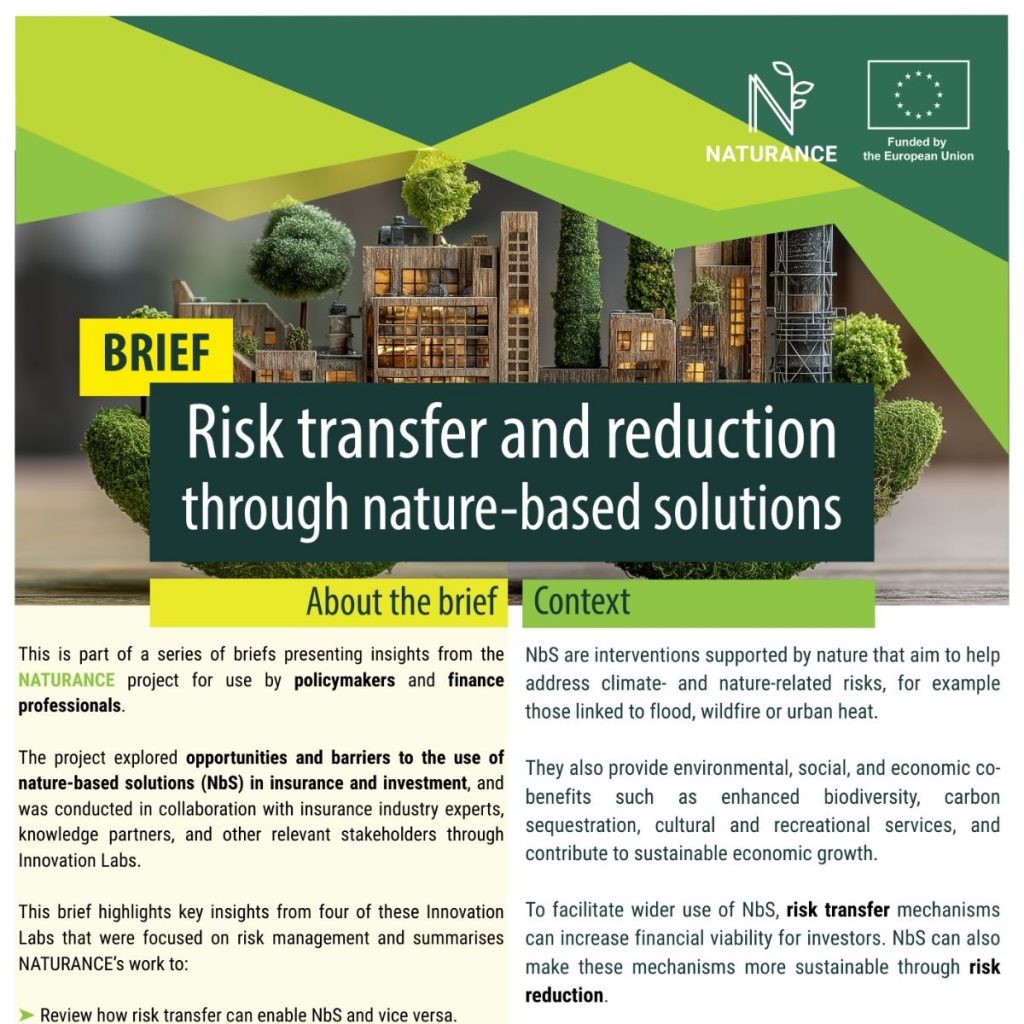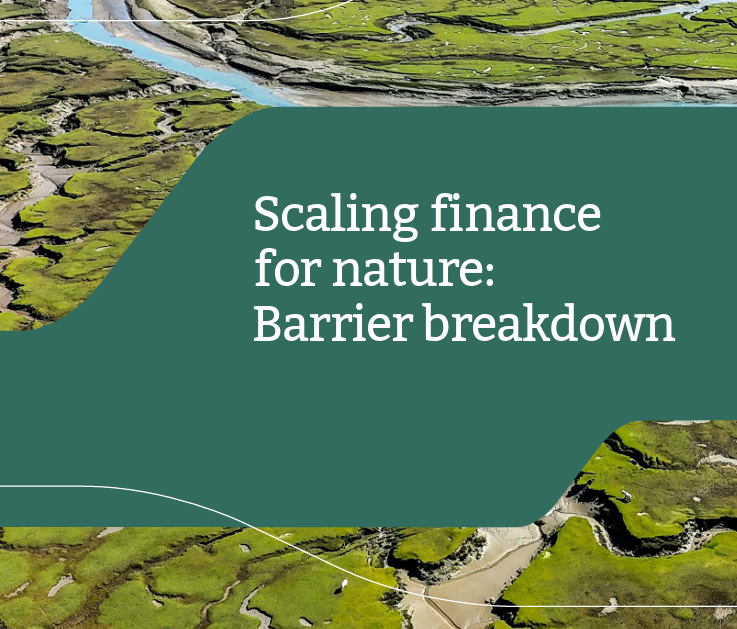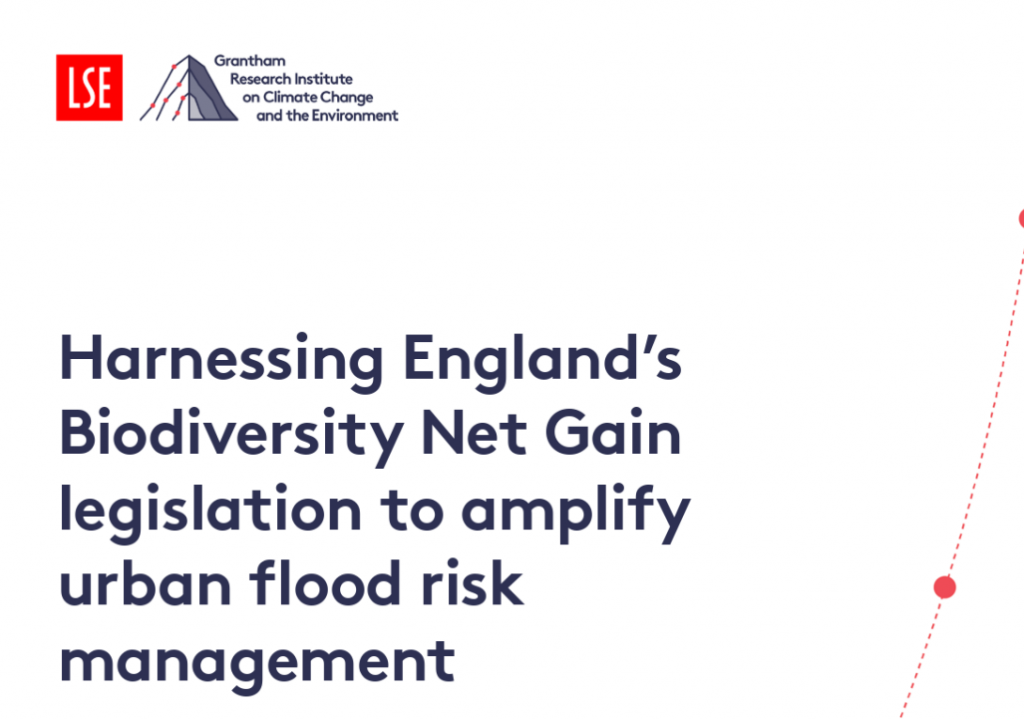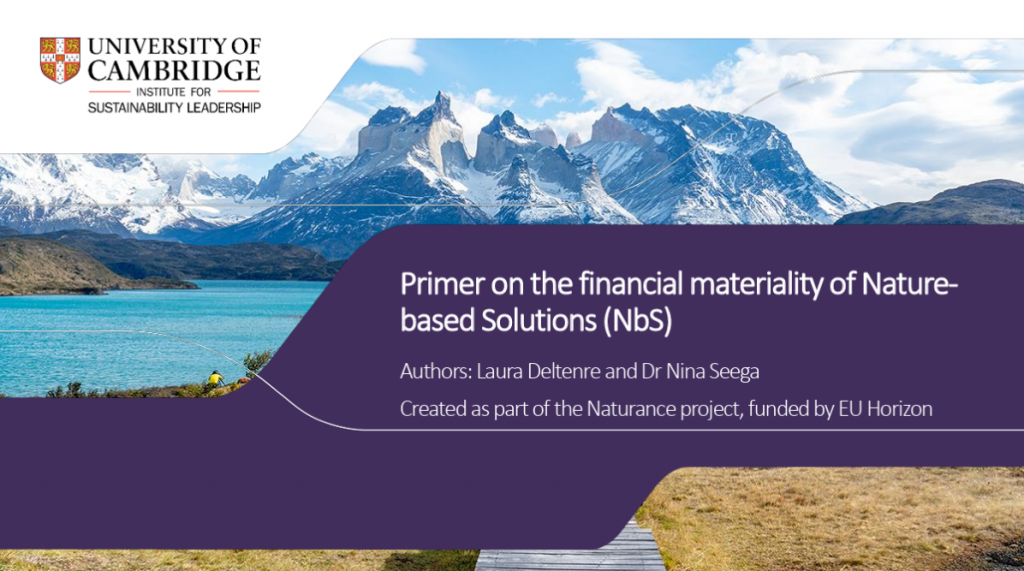Stay connected
Learn about the latest research and results from the project.
Subscribe to the NATURANCE Newsletter!
Learn about the latest research and results from the project.
Subscribe to the NATURANCE Newsletter!
Explore briefings from the NATURANCE consortium on nature and biodiversity challenges and solutions
the NATURANCE Consortium – 2026
This is part of a series of briefs presenting insights from the NATURANCE project for use by policymakers and finance professionals. This brief highlights key insights from four of the Innovation Labs that were focused on risk management and summarises NATURANCE’s work to: Review how risk transfer can enable NbS and vice versa; Explore opportunities for supporting greater NbS use in the contexts of: Resilience of UK housing and the built environment to withstand flooding; Rising wildfire risk due to climate change and land use pressures; flood risk management in Italy given increased glacial melt/precipitation; Urban heat action plans in Europe.

Amaratunga D., Mysiak J., Resch C., Nissanka S. – 2025
Despite the consistent attention paid to the need to mitigate disaster risks over the years, the impact and economic damages of disasters have grown continuously. Investments in disaster risk reduction (DRR) have not kept pace with the rapidly changing environment, and many economic and investment plans remain blind to disaster and climate-related risks. In addressing these challenges, incentivising and rewarding risk-informed local and national investments in resilient practices has been identified as a mechanism where risks can be transformed into opportunities supporting resilience building, including through utilising insurance instruments in this process.
Taaffe S., Martin C., Barker R. – 2024
This report aims to clarify that achieving the biodiversity financing goals set out in the Global Biodiversity Framework requires a dual approach. Currently, private capital contributes US$5 trillion in finance flows linked to negative impacts on nature, while US$10.1 trillion in economic opportunities could arise from the transition to a nature-positive economy. By simultaneously halting and reversing nature’s loss, private finance can play a transformative role in reducing nature-related risks and accelerating this transition.


Sherry M. and Kassian J. – 2024
The introduction of England’s Biodiversity Net Gain legislation in February 2024 offers a timely opportunity to strengthen flood risk management (FRM), especially in urban areas. To achieve this, barriers to implementation in cities must be addressed. The legislation could improve efficiency, encourage adoption, and deliver wider co-benefits. Given limited resources for grey and green infrastructure, BNG funding should be considered as a way to support FRM plans and promote nature-based solutions. Policymakers, planning authorities, and insurers should seize this opportunity to embed resilience into urban development.
Taaffe S., Martin C., Barker R. – 2024
This report aims to clarify that achieving the biodiversity financing goals set out in the Global Biodiversity Framework requires a dual approach. Currently, private capital contributes US$5 trillion in finance flows linked to negative impacts on nature, while US$10.1 trillion in economic opportunities could arise from the transition to a nature-positive economy. By simultaneously halting and reversing nature’s loss, private finance can play a transformative role in reducing nature-related risks and accelerating this transition.


Deltenre L., Seega N. – 2023
Building on CISL’s work on nature-related financial risks, ClimateWise has developed this primer on nature-based solutions (NbS), as half of re/insurers surveyed consider these risks material for underwriting, although most are not yet assessing them. Nature-related risks are hard to measure due to complex interactions between nature, society, and the global economy. Insurers can reduce impacts or restore nature by incentivizing sustainable behaviors, innovating in asset protection, facilitating capital flows, and collaborating with governments. This allows the industry to manage risks proactively, contributing to ecosystem protection and restoration rather than merely reacting to claims.